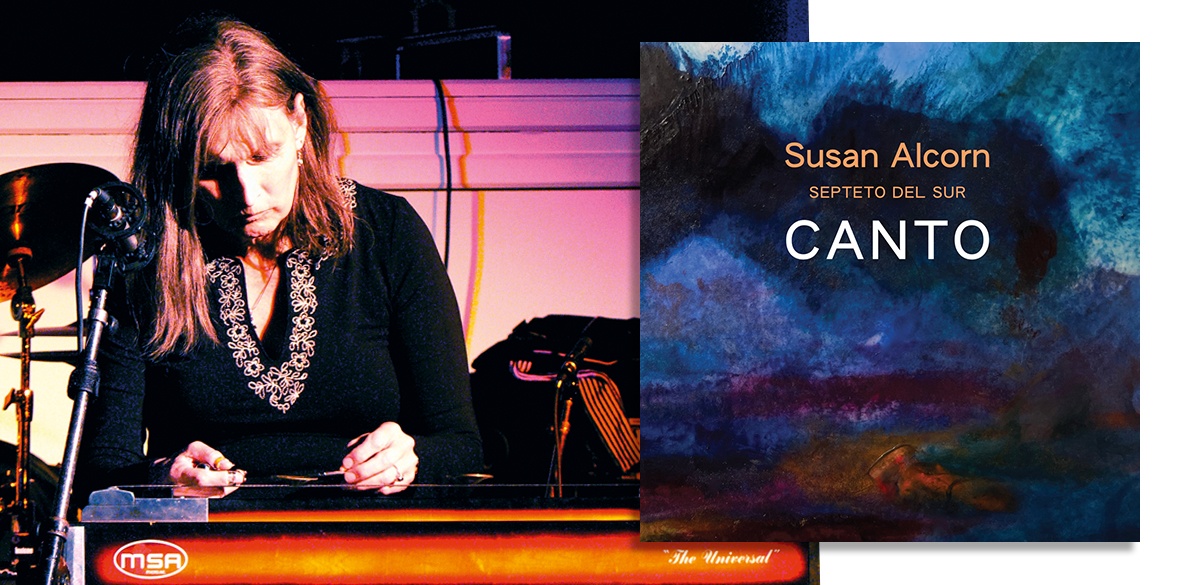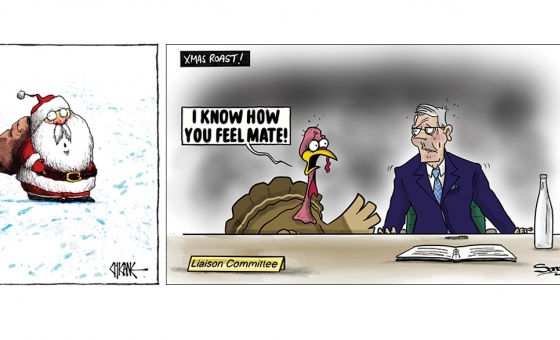This is the last article you can read this month
You can read more article this month
You can read more articles this month
Sorry your limit is up for this month
Reset on:
Please help support the Morning Star by subscribing here
HOW did a pedal steel guitar virtuoso who grew up playing country and western music in Texas, embrace the ordeal and struggle of the people of Chile? It is a story well worth telling, and expressed in her latest album, the beautiful and moving Canto.
Born in Cleveland, Ohio in 1953, Susan Alcorn’s mother was a classical music lover who sang with the Cleveland Symphony Orchestra, her father a talented mime-artist.
“I was a ’60s teenager. All my friends were into the Beatles, but I was a contrarian who liked the Dave Clark Five (and wondered what the ‘Tottenham Sound’ was) and Roy Orbison. I picked up a guitar when I was 12 and loved US and British folk music along with the Blues — Robert Johnson, Bessie Smith, BB King and Willie McTell. I also liked psychedelic music and rock — my mind was like a sieve — and John Coltrane.
“Then I heard Muddy Waters at a club in Chicago and was physically moved by his bottleneck guitar playing, by the power of one note surrounded by all the overtones and ‘notes between the notes’ of his slide. It was transformative and led me towards playing slide guitar, then dobro, then at 21, pedal steel guitar. I heard it in Country and Western music; it was so versatile.”
As for jazz, she heard Ellington, Basie and Ella Fitzgerald growing up, “but it was my parents’ music and sounded corny to me. But when I heard Coltrane on underground radio stations, I was hooked!”
Then she moved to Texas. “The first pro music I played was country in local bands around Houston with some very good musicians and local stars. Then I heard Coltrane’s Invocation to Om, Pharoah Sanders, Alice Coltrane, Miles, Shorter and Charlie Haden. The pedal steel has a long connection with jazz. Early country musicians often jammed with black jazz musicians, both influencing each other.”
She said that her defining moment in playing free improvisation was meeting composer and music philosopher Pauline Oliver and studying her deep listening approach to music and sound. “Then I listened to and played live with Mary Halvorson, Nate Woolley, Caroline Kraabel and English improvisers Evan Parker and Trevor Watts.
“I was inspired by the passion of the Argentinean Mercedes Sosa’s voice and the seriousness of her words, but also her beauty, joy and the sense of hope she inspires. Then she heard Chilean ‘nueva cancion/new song’ music by Violetta Parra, Inti-Illimani, Illapu and Quilapuyan. I first visited Chile in 2003.”
Canto features some of her great Chilean musical peers of Septeto del Sur. Guitarist Luis “Toto” Alvarez combines a mastery of free improvisation with Chilean folkloric music. He also runs a label dedicated to Chilean experimental music.
For Susan, Amanda Irarrazal is a “bassist’s bassist” and percussionist Claudio “Pajaro/Bird” Araya is a founder of the Nueva Cancion band Huara, “with an instinctive feel for drums and rhythm,” while charango and quena virtuoso and Illapu member Francisco “Pancho” Araya “plays the right thing in any situation.” Danka Villanueva “plays her violin with a fiery emotion” and flautist Rodrigo Bobadilla “is the glue that holds the musical fabric of the septet together.”
The music of Canto reflects its now-times era. “The coup and Pinochet’s dictatorship left a giant wound in the Chilean psyche that still has not healed,” says Susan. “Many Nueva Cancion artistes spent decades in exile.”
The album’s three-part suite has as its first section Donde Estan?/Where are they? and remembers the huge numbers of Chilean “disappeared” while the second section celebrates the Mapuche indigenous Chileans. Alcorn’s presence and musicality unifies the Americas in a moving timbral solidarity across all frontiers.
I asked her why the album finale was Victor Jara’s El Derecho de Vivir en Paz/The Right to Live in Peace. “It was a late decision at the end of the recording session. The album’s music goes to some dark places, and I wanted to break the heaviness of some of the tunes. So I asked the members to choose a song.
“Victor’s song is about social justice and US imperialism in Vietnam, but in singing and playing it there is a sense of joy, of determined Chilean hope that arises from sadness and tragedy.”
Susan’s wish is to return to Chile with her message of internationalism and love between peoples, “to share the music with the families of the desaparacidos/disappeared.” For her record is for them, and for all of us.
Canto is released by CANTO Relative Pitch Music









